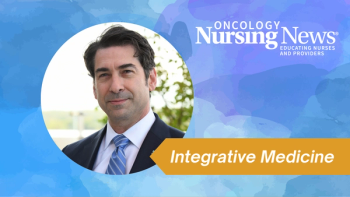
When Your Patients Get Excited by Cancer Medicine Hype
What are some things we can do to steer our patients away from bad information?
There’s been a lot of talk about “fake news” lately. How can we protect our patients from being led astray by information that could harm them? Oncology nurses need to be on the lookout for good information that will direct patients with cancer to take actions that are safe and in the interest of producing the best health outcome, as well as increasing their knowledge and understanding.
Too many sources of health information are selling products or services that are described as if they will lead to a miraculous breakthrough that promises to be a “game changer,” or use other emotionally charged words. Even trusted academic medical centers have been caught up in the hyperbole.
Our patients are vulnerable to these selling points because of their fear around cancer recurrence. It’s important for us to give them guidance in reading and making wise choices. Nutritional supplements are one set of products loaded with misinformation and sales hype, but now we have a whole new set of technological opportunities thrown in to the mix. Ease of access to information, especially via social media, have made these real-versus-fake distinctions extremely challenging for the layperson to discern.
Here’s a recent example: The availability of genetic testing for certain mutations that may predispose certain people to develop cancer. First, most laypeople don’t know the difference between germline and somatic mutations that lead to cancer. They might not know that genetic counseling is available to sort through these weighty issues or understand all the implications of using a commercially available test. We can inform them that when it comes to genetic testing, physicians and genetic counselors should be the guide, not ads that appeal to emotions and fears.
One of my favorite resources online that looks at health information is
What are some things we can do to steer our patients away from bad information? Here are a few words of wisdom to share:
- One study is not conclusive ... if it’s hyped as a “new study” but doesn’t support a pre-existing body of evidence, it’s probably not ready for prime time, especially if emotionally charged words are used to describe it.
- If it’s something you put in or on your body, especially if you’re in active treatment, check with your oncologist first to make sure it’s safe to use.
- Besides your oncologist, registered dietitians (RD) are the best resources for information on nutrition, supplements, and the need for supplements to your diet. Pharmacists (not pharmacy technicians) are especially helpful if you’re concerned about interacting with other medications or supplements you may be taking.
- Make sure you’re not asking someone for advice who claims to be an expert in an area but doesn’t have the proper licensing, credentials, experience, and skills to back it up. For medical advice, always talk to a licensed, and preferably board-certified in that specialty, physician.
Newsletter
Knowledge is power. Don’t miss the most recent breakthroughs in cancer care.




































